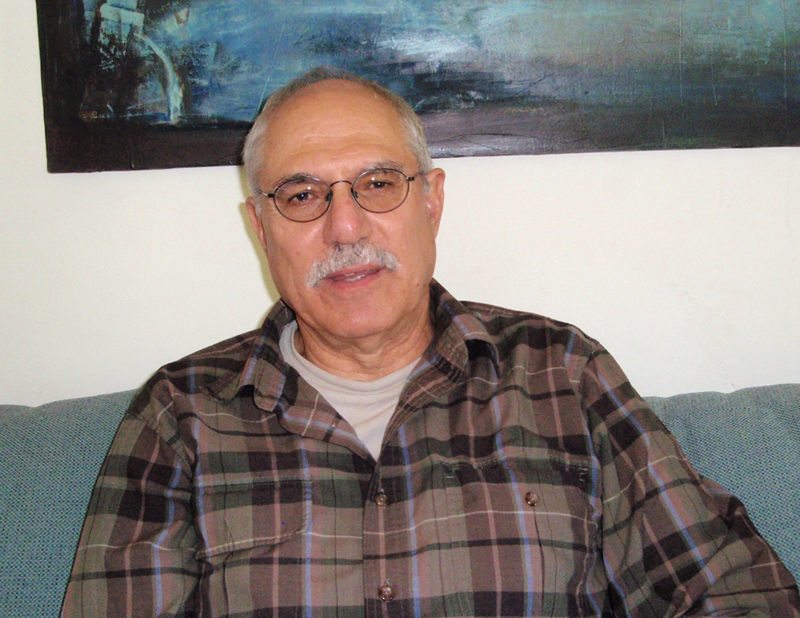American "authenticity" against corrupt bicoastal elite
Bill Issel & Zeese Papanikolas
[for Chronos, 11th November 2016]
Hillary Clinton campaigned on the slogan “Stronger Together,” Donald Trump promised to “Make America Great Again,” slogans that set the stage for a culture war that reached a fever pitch during this campaign. It was a war that concealed much and one that Hillary Clinton was bound to lose. The message Trump’s slogan scarcely bothered to conceal, easily read by both his supporters and his opponents, was that its real meaning was in fact “Make America White Again.” The message of inclusivity in Hillary Clinton’s slogan, in fact concealed a poverty of empathy and clearly defined solutions for the real economic pain and insecurity of vast numbers of voters ripe for exploitation by Trump’s angry tirades against immigrants, Muslims, women and the Washington establishment. But without the Great Recession and the rise of ISIS, Trumps’ victory would probably never have been possible. Thus his triumph can best be understood as the consequence of the intersection of several dynamics: the long-term consequences of the Great Recession and the deleterious consequences of the Second Iraq War; the uneven benefits of post-Cold War Neoliberal globalization; the limited appeal of Hilary Clinton (and the very fact of her being a woman); the success of a distinctive American version of right wing white ethno nationalist populism.
Many commentators have noted the minuses of Hillary Clinton's candidacy, and many Democrats (we don’t know in what numbers yet) who voted for Bernie Sanders in the primaries refused to vote or voted for progressive Jill Stein because they saw Stein, like Sanders as a more “authentic” progressive. Trump received the votes of millions of “Straight Ticket Republicans” who disliked the Donald but would never sit out an election yet would never vote for a Democrat. Like House Speaker Paul Ryan, they held their nose and voted Trump. We do not yet know, and may never know, how many nominally Democratic voters, angry and frustrated by their economic and cultural marginalization, voted for Trump in spite of Trump. We do have one indication: the county returns from Michigan, Wisconsin, and Minnesota and the returns from “rustbelt” counties in Ohio and Pennsylvania suggest that thousands of voters who had supported Obama turned their backs on him and Hillary Clinton and voted for Donald Trump last Tuesday. There is great economic insecurity and genuine suffering among that part of white America that has never benefitted from the post-Cold War wave of Neoliberal globalization. You don’t brand a vast number of American voters as “deplorable” as Hillary Clinton seemed to do and call that a program. It was the essence of the Liberal smugness that has turned a significant number of rural and working class Americans against the Democratic Party.
It is significant that millions of voters in this election put a high importance on "Authenticity" and being an "Outsider" who condemns the “Washington Insiders.” Such voters on the Right reveled in Trump’s rhetoric because, as one white middle aged woman put it in a television interview “he is speaking our language.” Such “authenticity” voters on the Left interpreted Clinton's move in their direction as evidence of hypocrisy, instead of regarding it as a positive response to the desire in the electorate for a more social democrat agenda as evidenced in Sanders’s success in the primaries and caucuses. And, in regard to critics of “Washington corruption,” pundits from Alexis de Tocqueville to MSNBC’s Chris Matthews have noted the very long history of American voters’ determination to punish the incumbent’s party whenever they wanted to punish the incumbent President for his perceived flaws, and Obama’s robust campaigning for Hillary Clinton led many critics to argue that she would embody a third term of office for Barack Obama.
Finally, white populist ethno nationalism undoubtedly played a greater role in the 2016 election than commentators have acknowledged. White racism and xenophobia, and a rejection of pluralism in all its guises, from welcoming immigrants from Syria to the celebration of gay marriage helps explain why many, not all, Trump supporters are now saying “Finally, the People (read the "real" i.e. white, people) have finally taken back their country from the Establishment” (read the "corrupt bicoastal elite" and “diverse” promoters of pluralism/inclusion of the Democratic Party post-1972).
Both Bill and Hillary Clinton, and President Barack Obama have been criticized for promoting a neoliberal agenda since the 90s. They, and other Democrats who have done so, in contrast to more social democrat Democrats like Bernie Sanders and former Labor Secretary and now Professor Robert Reich, have acted out of a desire to address a genuine issue: The lack of support in the Congress and among the electorate for the kinds of policies that have been rejected both in the USA and abroad because legislators and voters refuse to tax themselves to make social democracy happen. These policies can only gain a hearing in a country less fractured, less angry, more thoughtful than the United States we see today.
(first published in CHRONOS magazine, 11 Nov. 2016)
![]()
US Flag: WIKIMEDIA COMMONS, by Jnn13
ΧΡΟΝΟΣ #43, 11 Νοεμβρίου 2016

Bill Issel is Professor of History Emeritus at San Francisco State University, where he served as director of the American Studies Program. He has also served as a Senior Fulbright Professor at the University of Westminster in London and as the László Országh Chair in American Studies, a Fulbright Distinguished Lecturing Award, at the University of Pécs. He is currently writing an updated and expanded edition of his book SOCIAL CHANGE IN THE UNITED STATES.

Zeese Papanikolas writes about American culture and history. His book on a Greek immigrant labor organizer killed in a violent strike in Colorado in 1914, BURIED UNSUNG: LOUIS TIKAS AND THE LUDLOW MASSACRE has been translated into Greek by Pelagia Marketou as AMOIROLOITOS. Ms. Marketou is currently preparing a new Greek edition. Papanikolas’s latest book is AN AMERICAN CAKEWALK: TEN SYNCOPATORS OF THE MODERN WORLD.
